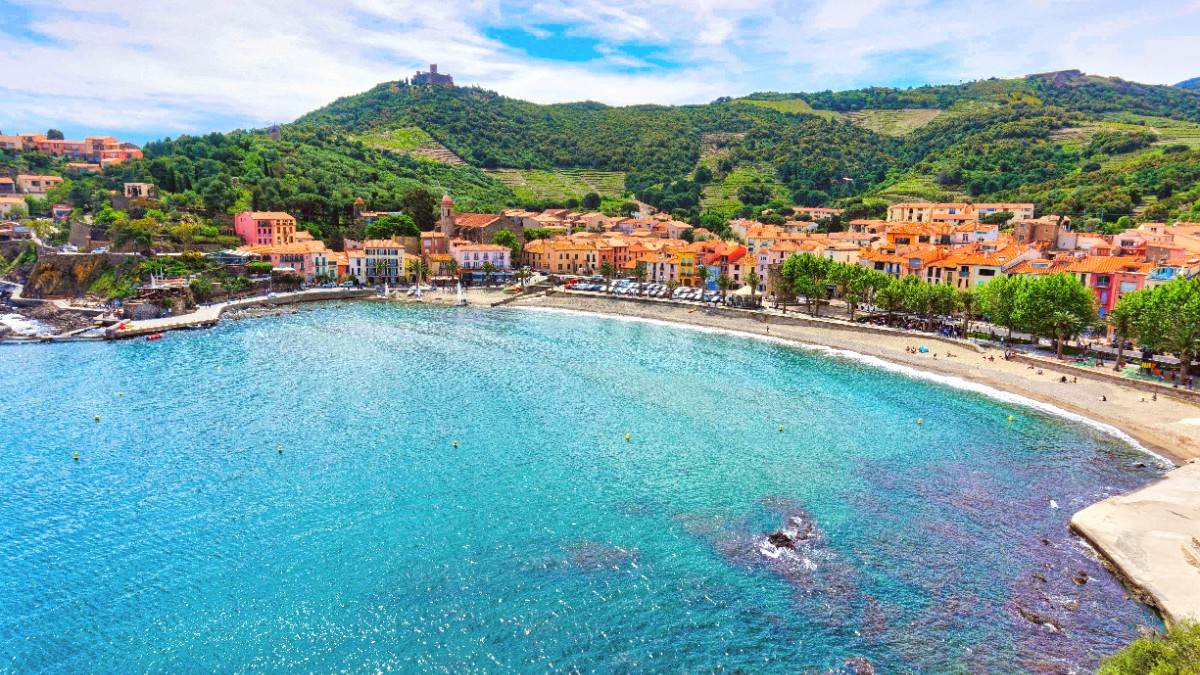
France
The town’s deep connection to the sea and the surrounding vineyards and mountains shapes the local diet, creating a distinctive and flavorful culinary identity.
The region's strong Catalan identity appears in its food. For centuries, Collioure was a significant fishing port, specifically famous for its anchovies. Proximity to Spain brings dishes like paella and fideuà into local menus, alongside traditional French specialties.
The Mediterranean diet, emphasizing fresh, seasonal ingredients, forms the cuisine's foundation. The art of salt-curing anchovies, a tradition passed down through generations, marks the town's unique culinary heritage.
Strong Catalan identity means specialties like paella, fideuà (noodle-based paella), and specific Catalan pastries. Local wines (Collioure and Banyuls) are integral to the dining experience. A leaning towards robust, sun-kissed flavors.
Lunch typically 12:00-14:30, dinner 19:00-22:00+. Restaurants often close between services. An "apéro" (aperitif) is common. Meals are leisurely, for savoring food and conversation. Polite to wait to be seated. Keep hands visible on the table.
Breakfast often light (coffee, croissant). Lunch can be substantial. Dinner is a social event, often with multiple courses and extending over a few hours, notably in high season.
Collioure has a range of dishes and beverages that showcase its unique culinary heritage. Do not leave without experiencing these local specialties.
The iconic local specialty, known for their distinct, rich flavor and delicate texture. Find them marinated in oil, salted, or in various dishes.
Visit Maison Roque for tastings and sales, gaining insight into their traditional preparation.
Banyuls: a sweet, fortified wine from vineyards south of Collioure. Roussillon: superb dry red, white, and rosé wines. Perfect complements to local cuisine.
Visit a local cellar for a tasting.
Paella: Spanish rice dish with seafood, chicken, vegetables. Fideuà: similar to paella but with short, toasted noodles. Both reflect strong Catalan influence.
Found at many local restaurants, offering a taste of regional staples.
Collioure and Banyuls wines are the local stars. You will also find various local apéritifs.
Fresh fruit juices, often from local produce, are refreshing. "Diabolo Menthe" (mint syrup mixed with sparkling water) is a popular French non-alcoholic drink.
Collioure has a diverse range of dining experiences, from high-end gastronomic adventures to casual, budget-friendly eateries.
Collioure has several upscale restaurants, many with prime locations overlooking the sea, with refined cuisine. Le Neptune and La Casa Lina specialize in exquisitely prepared seafood and regional French-Catalan dishes with a modern twist.
Numerous options line the port, fill the town center, and extend into the Faubourg area. These restaurants have fresh seafood, traditional French dishes, and local Catalan specialties at accessible prices.
For budget-conscious dining, local bakeries (boulangeries) are excellent for sandwiches, quiches, savory pastries, and sweet treats.
Collioure hosts a lively weekly market, typically on Wednesday and Sunday mornings. It sells fresh local produce, regional cheeses, cured meats, olives, and other regional specialties.
An excellent place to gather ingredients for a picnic or to simply soak in the local atmosphere and sample various products.
While not a dedicated "food hall," the market has a diverse range of prepared and fresh foods.
Eating from markets is a cost-effective and authentic option.
Some restaurants may have Italian (pizza/pasta) options.
You might find other European options, but the focus remains local.
For a broader international range, larger cities like Perpignan are more suitable.
In Collioure, embrace the local flavors for the most authentic experience.
Planning ahead for specific dietary needs can make dining more enjoyable and worry-free.
Halal and kosher options are generally not readily available. Self-catering from local supermarkets or bringing specialized food items might be the most practical approach.
Consider pre-packed meals for convenience.
If you have severe allergies, inform staff clearly. Use simple French phrases like "sans gluten" or carry a translation card. French law requires allergen info upon request.
Exercise caution regarding cross-contamination.
Simple phrases can greatly improve communication with restaurant staff.
The local market is a great resource for fresh, whole ingredients to prepare your own meals tailored to specific diets.
Beyond dining, Collioure has opportunities for engagement with its food and wine culture. These experiences give insight into local traditions and production.
Enjoy dining al fresco at one of the many waterside restaurants, with beautiful views of the bay and castle.
Some establishments might have "tapas" or "raciones" style dining, reflecting the Spanish influence, making it possible to sample a variety of small dishes.
Look for local restaurants or wine bars that offer curated wine and cheese pairing experiences, highlighting regional products.
Food tours concentrating on local products, like anchovies or wine, are available, often including visits to producers and tastings.
Inquire at the Collioure Tourist Office for current offerings.
While less common directly in Collioure, some private chefs or guesthouses in the wider Pyrénées-Orientales region may have local cooking classes focusing on Catalan or Mediterranean cuisine.
A hands-on way to learn traditional recipes.
Collioure’s anchovy industry is a part of its history and culinary identity. Visiting Maison Roque connects you to this tradition.
The surrounding vineyards produce distinct Collioure and Banyuls wines, central to the region’s gastronomic scene. Winery visits are recommended.
Embrace the fresh, seasonal ingredients and aromatic profiles that define French-Catalan cuisine in Collioure.
Tipping is appreciated but not mandatory. Service (service compris) is usually included in the bill.